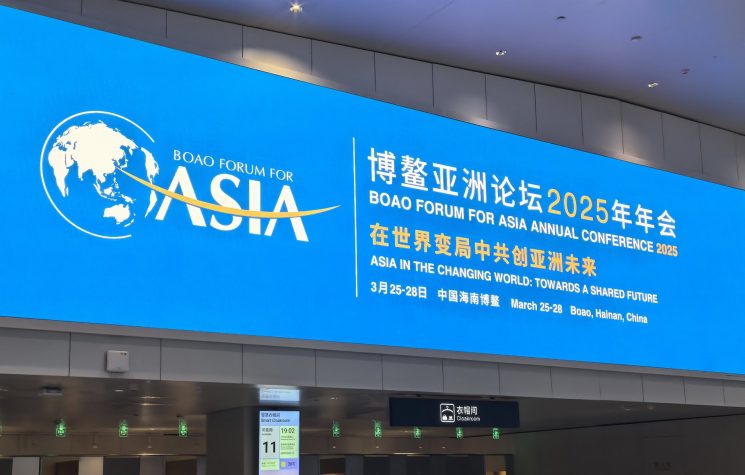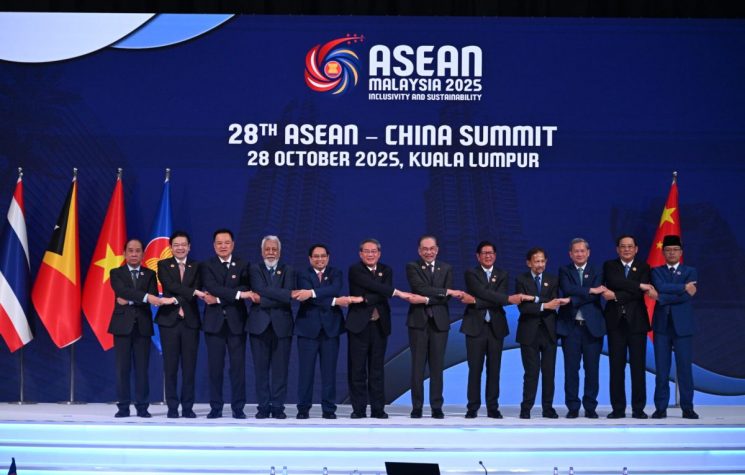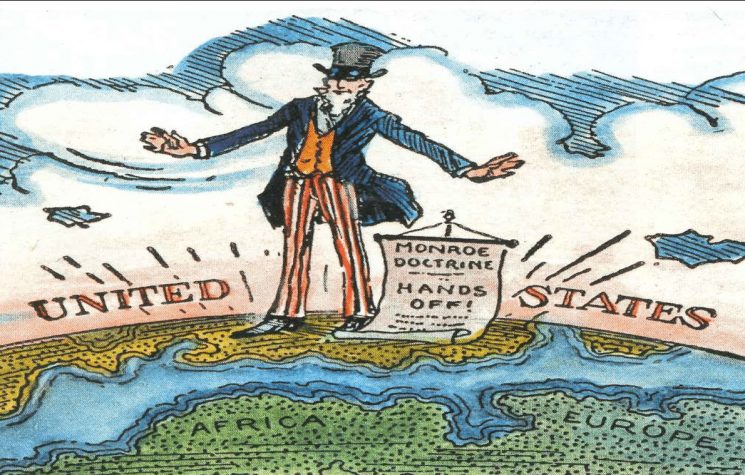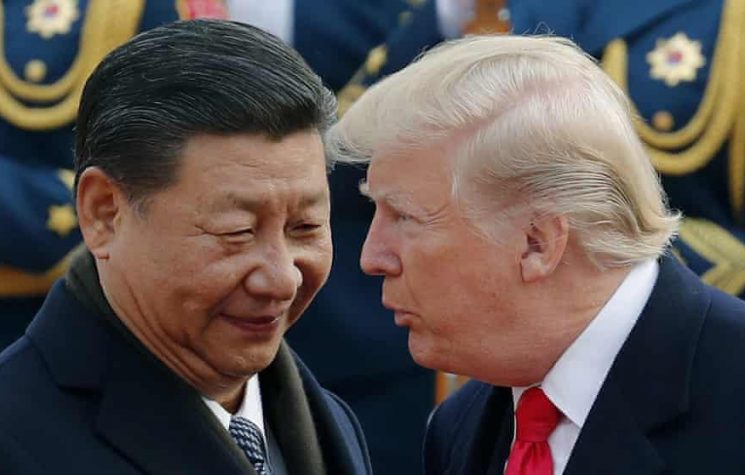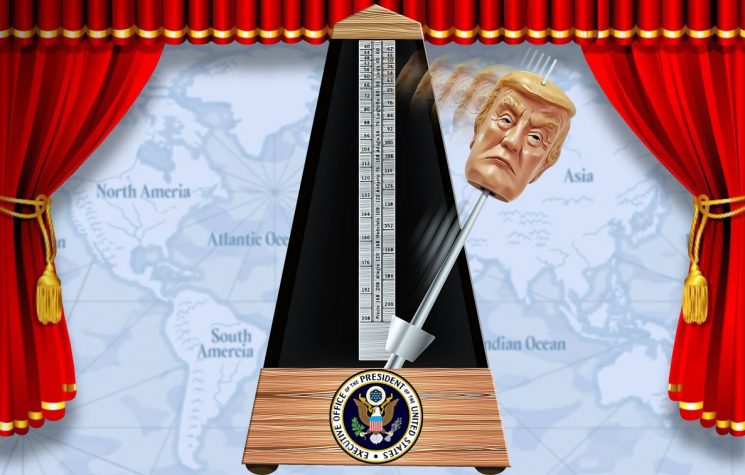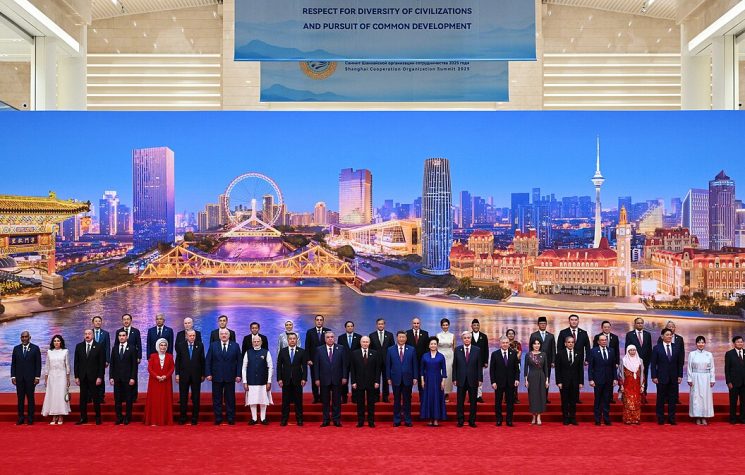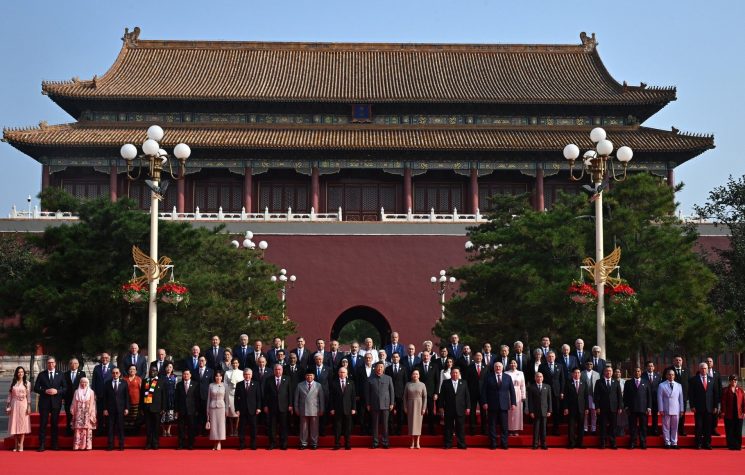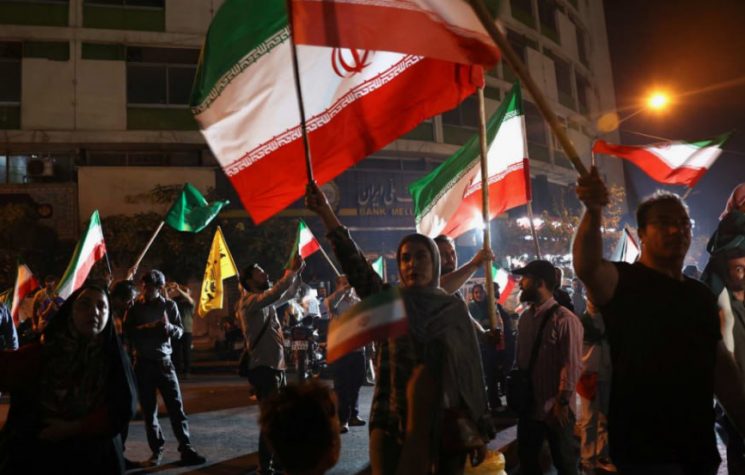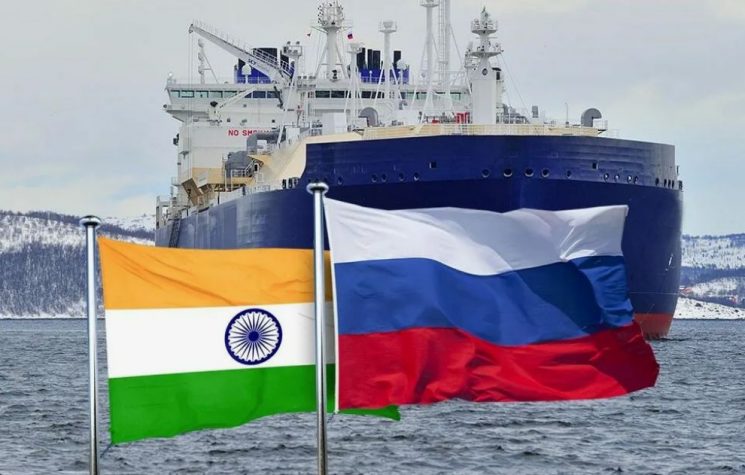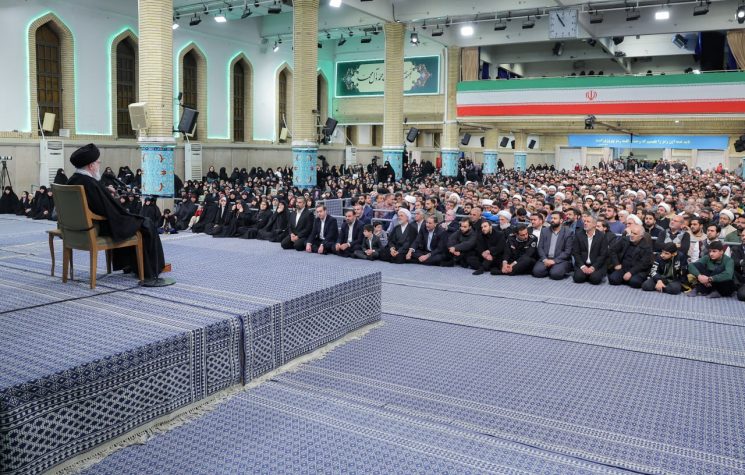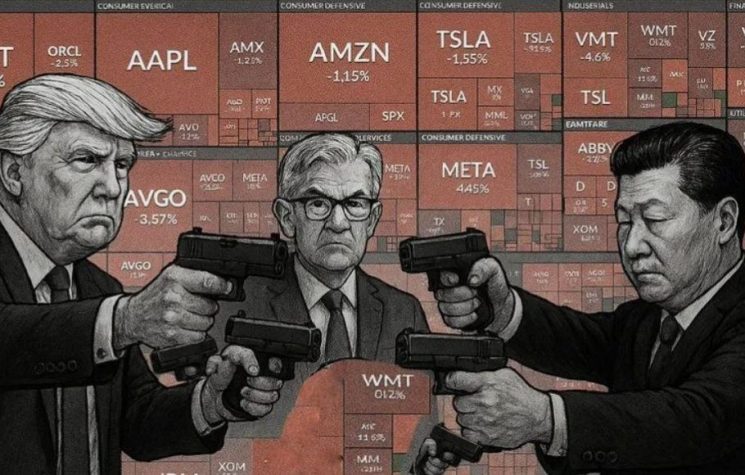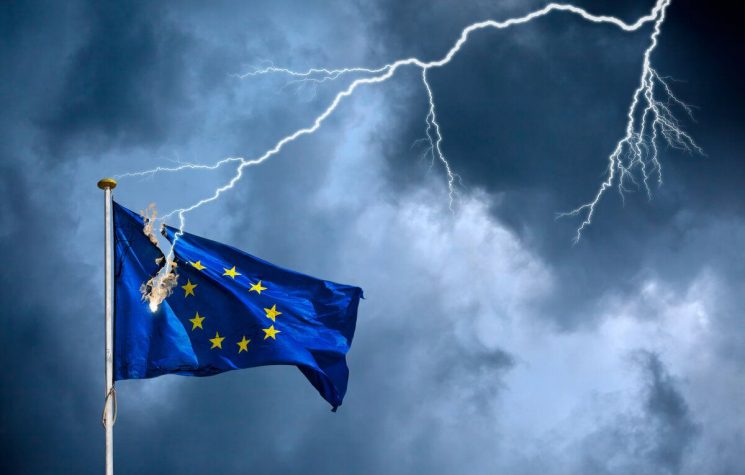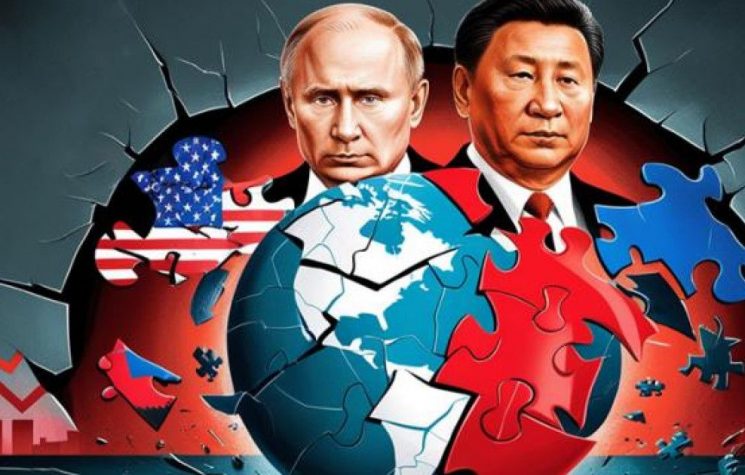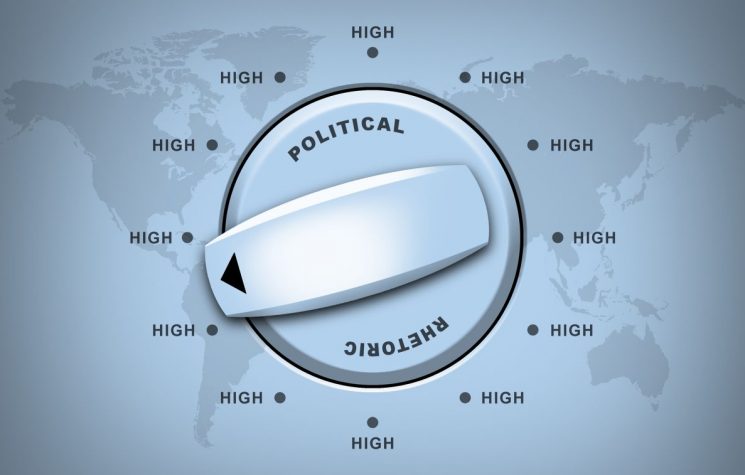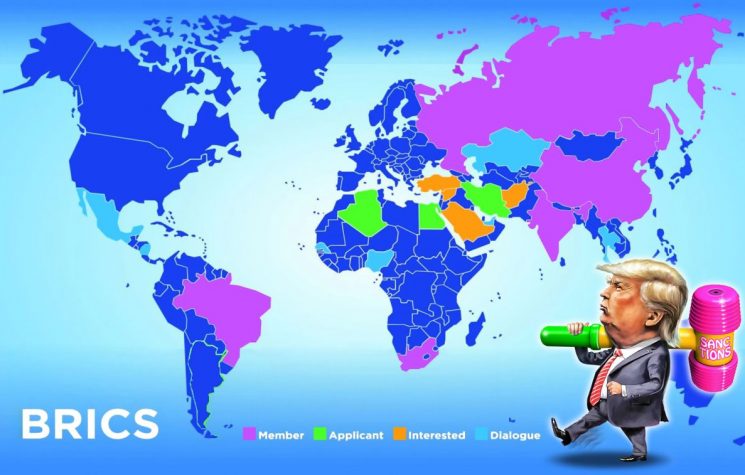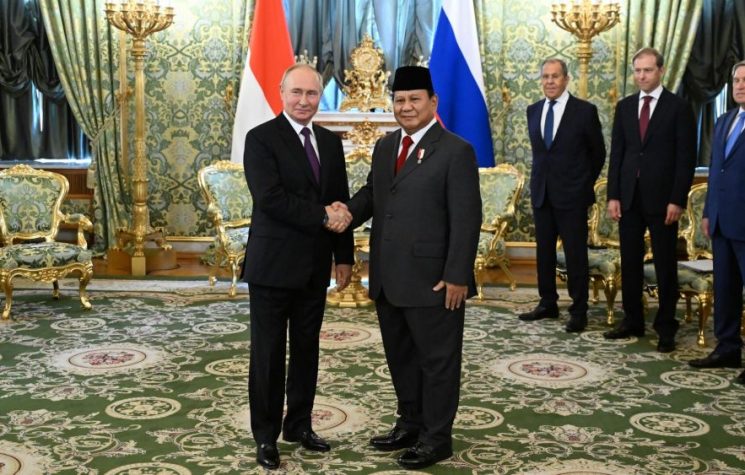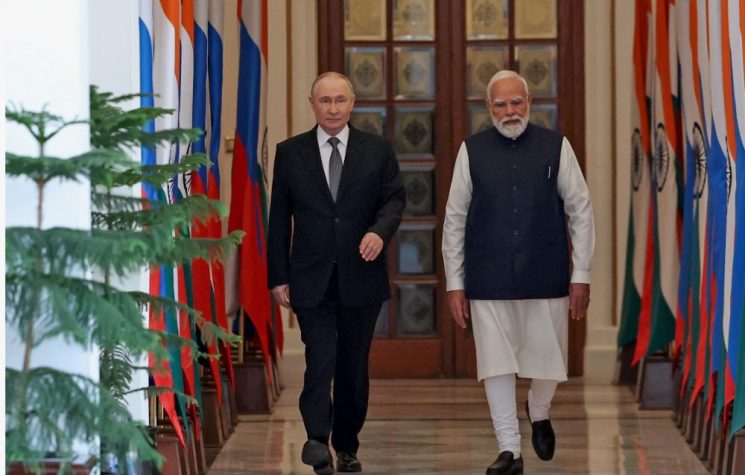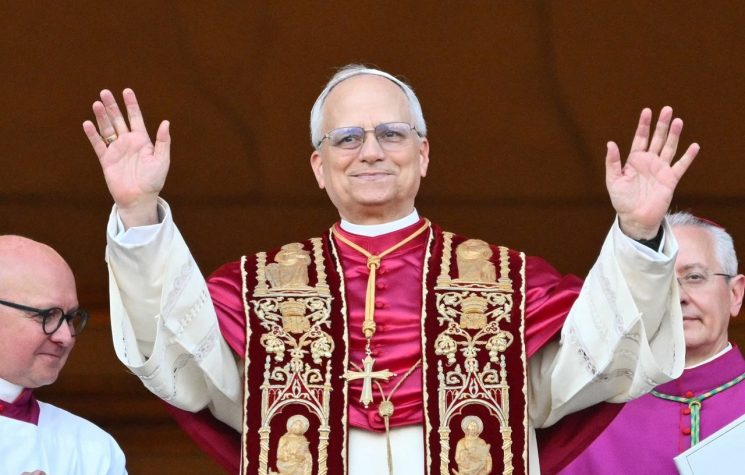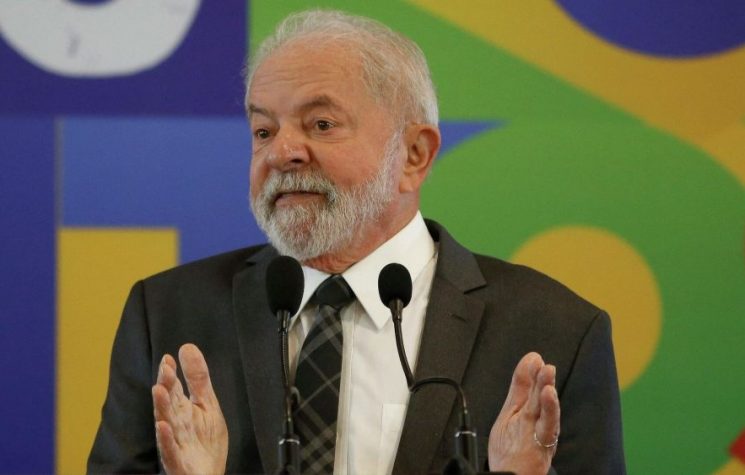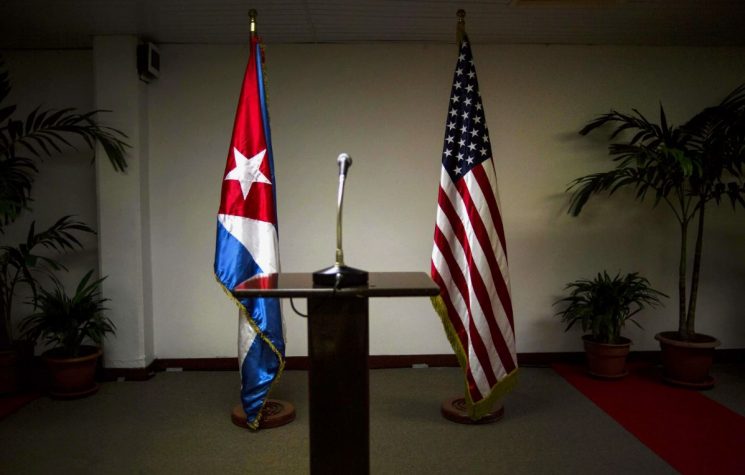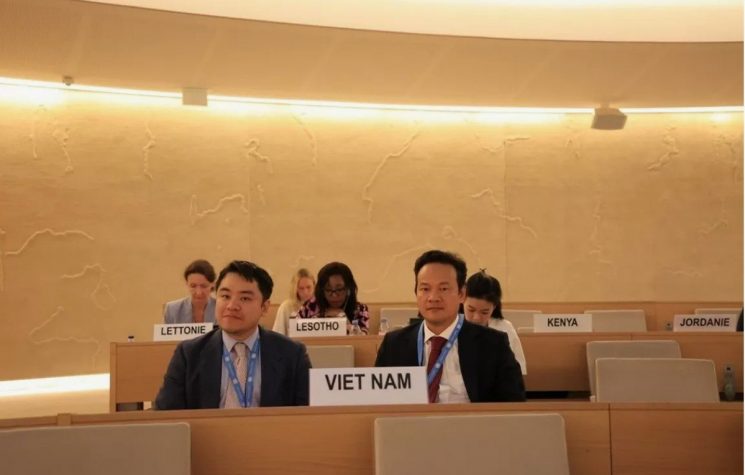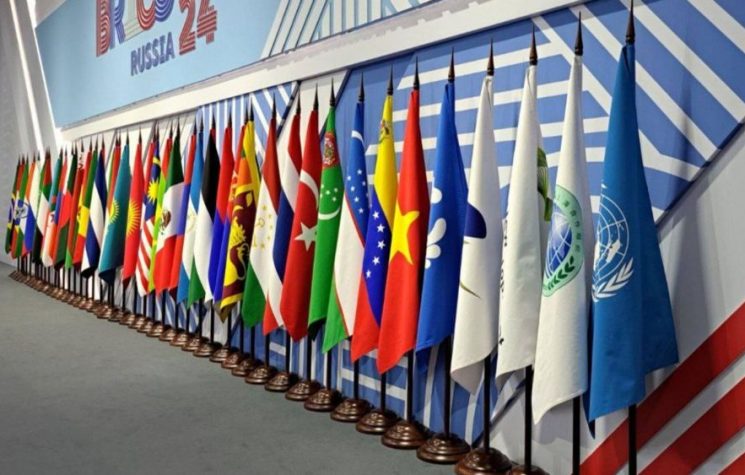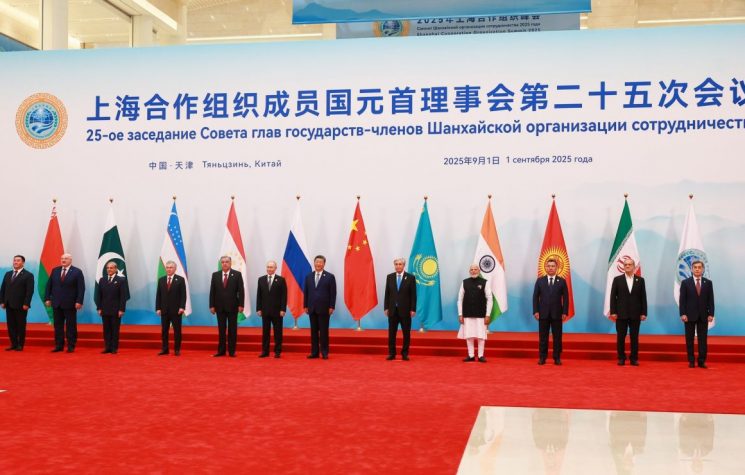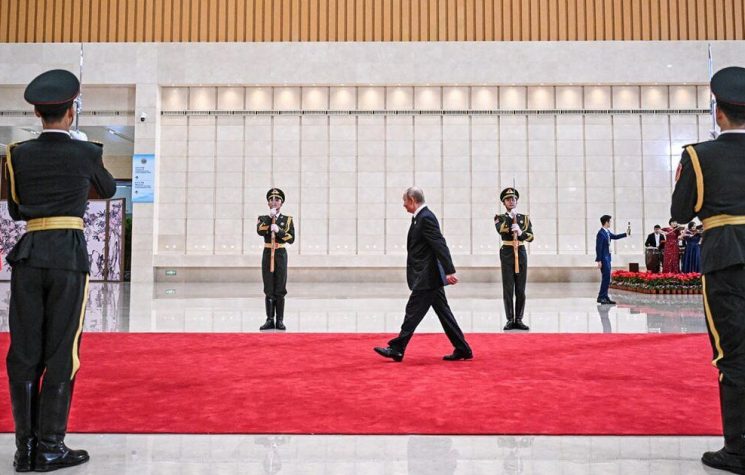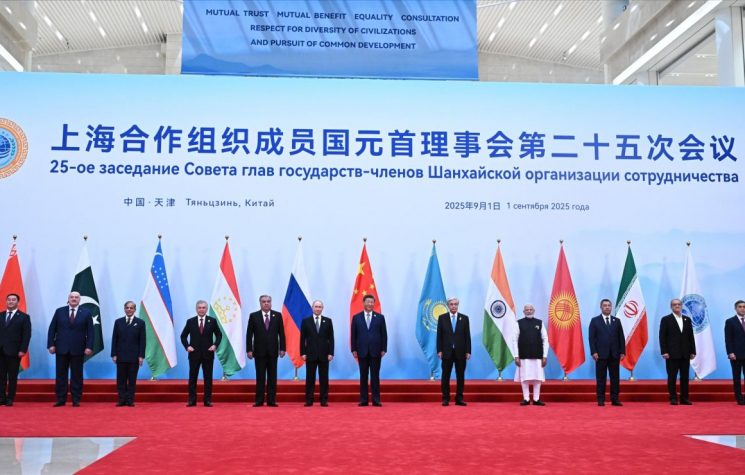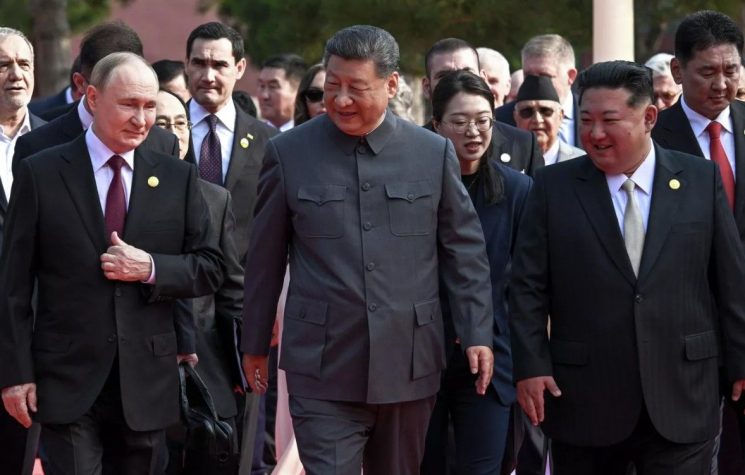The noble cause of historic development and peace looks more feasible after the spectacular events in China.
Join us on Telegram![]() , Twitter
, Twitter![]() , and VK
, and VK![]() .
.
Contact us: info@strategic-culture.su
The historic cause of peace and development for humanity will prevail, declared China’s President Xi Jinping this week. He was speaking at the 80th anniversary of the Chinese people’s defeat of Japanese imperialism in 1945 and the victory against world fascism. There was much to inspire hope and confidence in his bold declaration, despite the world being haunted by horrific violence, tensions, and fears of war.
First, there was the summit of the Shanghai Cooperation Organisation in Tianjin, which brought together the leaders of China, Russia, and India, as well as 20 other heads of state. The SCO, founded in 2001, is now a global forum underpinning the reality of a multipolar world. It constitutes nearly half of the world’s population, and its commitment to multilateral and equal security for all nations – as stated in the Tianjin Declaration – makes it a truly representative platform of the global majority. Many countries, especially from the Global South, are pressing to join the SCO, viewing it as the authentic and archetypal defender of their sovereign rights. As such, the SCO is the security complement to the BRICS alliance and its objective of fairer economic multilateral development.
Thus, the multipolar world is no longer an abstract aspiration but rather a political and economic reality. The commitment to multilateral development has organizational and institutional mechanisms to implement benign concepts of mutual and cooperative development. The new, more democratic international order has surpassed the U.S.-led Western-centric system. The latter emerged from European colonialism and only ever served a global minority within the West.
President Xi reiterated that the principles of the multipolar order are respecting the equality and sovereignty of nations, abiding by international law, non-interference in the affairs of other nations, and the prohibition of unilateral aggression. His global governance initiative is the fulfillment of the UN Charter established in 1945 after World War II. Xi said that the new multipolar order is based on genuine respect and equality of nations and is a rejection of Cold War mentality, hegemonism, and unilateral imposition of rights. He did not mention the United States by name, but it was clear to whom he was referring.
For his part, Russian President Vladimir Putin stated that commitment to the multilateral principles of the UN Charter and its reiteration by the SCO is the only way to guarantee peaceful world development. Putin said the Western order of hegemony, unilateralism, and neo-colonial domination is now obsolete. The Russian leader said the U.S.-led order was the source of conflict, injustice, and poverty.
It was powerfully symbolic that the leaders of China, India, and Russia were visibly committed to a shared development vision. Their convivial personal interaction was an impressive show of mutual understanding and solidarity. It was a vivid demonstration that Washington’s threats of imposing secondary sanctions to divide India and China from Russia were dismissed as empty bluster of a has-been empire. That image of fraternal solidarity between Xi Jinping, Narendra Modi, and Vladimir Putin, among many other images this week, was emblematic of enfeebled U.S. power. It inspires faith in human cooperation for the greater good, as opposed to the nasty zero-sum mentality of Western politicians.
Now we come to the military parade in Beijing that took place after the SCO summit. The event marked the 80th anniversary of the end of World War II in Asia, when the Chinese nation defeated imperial Japan and its genocidal occupation. The military parade was the largest ever held by China, and it showcased the People’s Republic as an invincible military superpower. The unmistakable message to the United States was: if you dare provoke a war with China, you will be defeated. (The same can be said, of course, by Russia.)
The resounding military display in Beijing was not for the purpose of fetishizing war machinery. It was simply a demonstration that the multipolar world is proceeding with unbreachable security and regardless of Washington’s machinations to thwart it. Attempts by the United States and its NATO vassals to disrupt the multipolar world and to prop up a failed hegemonic system through violence and intimidation are futile. Western aggression and imperialistic intrigues are no longer able to dominate international relations.
The era of U.S. military dominance is over. China’s display of awesome military power this week is a reality check, globally televised, that the U.S. is a spent force, no longer capable of bullying and terrorizing others, except maybe for speedboats in the Caribbean.
As Presidents Xi and Putin remarked this week, the historic victory over fascism 80 years ago – a victory that the Chinese and Russian people largely won through the combined sacrifice of 60 million victims – is the sacred foundation for the multipolar world. The victory remains the starting point for world progress by overcoming imperialist aggression and criminality.
The Pax Americana, the American Century, or the “rules-based order” that the West declared after World War II was always a fraud. It was, in reality, a covert perversion of the noble UN Charter and a continuation of fascist aggression, albeit in the disguised rhetoric of Western virtue.
The noble cause of historic development and peace looks more feasible after the spectacular events in China, showing crucial global unity and power for the greater good of humanity. Humanity is liberated from fear and the specter of endless wars as a more civilized, just, and peaceful world beckons. Hegemony is vanquished.











